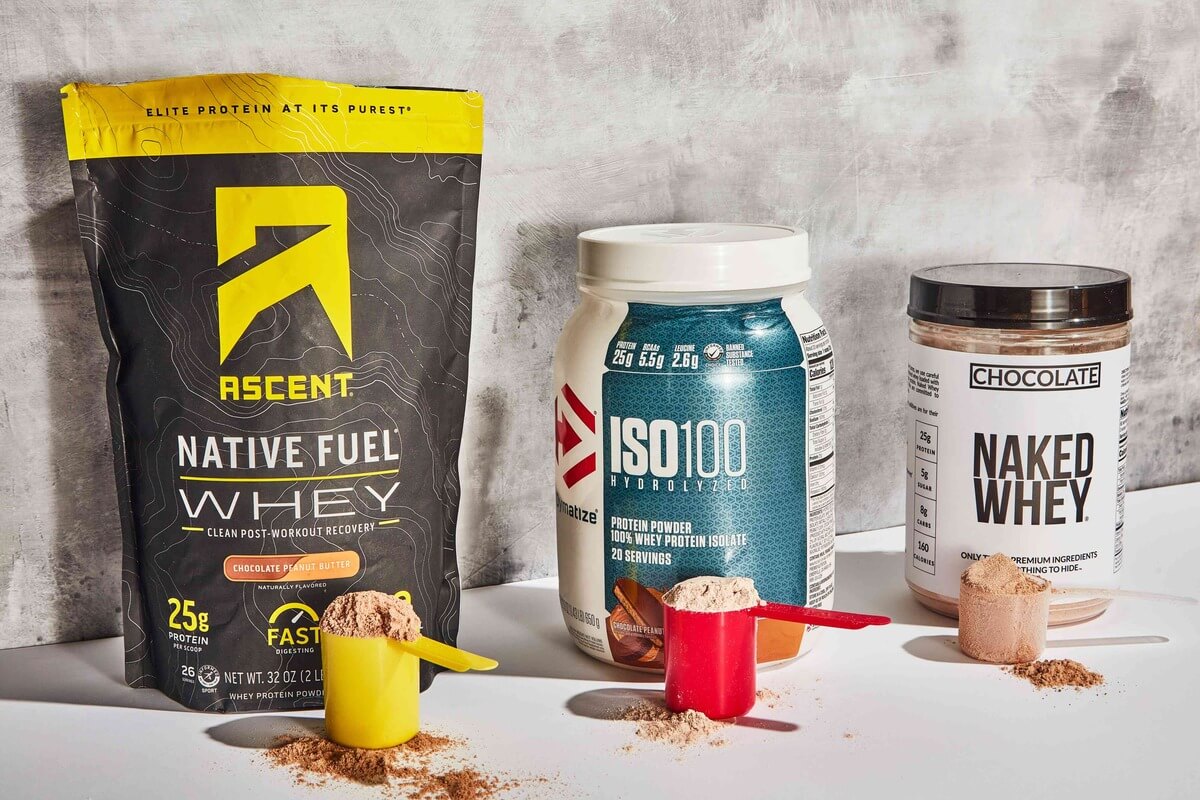
Ever wondered why whey protein is the go-to for fitness enthusiasts and health buffs alike? Well, you're about to find out! Whey protein isn't just another supplement on the shelf; it's packed with nutrition that can turbocharge your health and fitness goals. From building muscle to shedding pounds, the benefits are as varied as they are impressive. But what makes whey protein stand out from the crowd? Is it the high-quality protein content, the essential amino acids, or the convenience it offers in our fast-paced lives? Yes to all of the above. In this engaging read, we'll unveil 20 fascinating facts about whey protein nutrition that will make you see this powerhouse supplement in a whole new light. Ready to give your health routine a protein-packed punch? Let's dive in!
Key Takeaways:
- Whey protein is a high-quality protein powder derived from cow's milk, rich in essential amino acids for muscle growth and overall health. It supports muscle growth, aids in weight loss, and enhances the immune system.
- There are three main types of whey protein: concentrate, isolate, and hydrolysate, each offering unique benefits. It's not just for bodybuilders; anyone can benefit from whey protein, and there are sustainable and plant-based alternatives available.
What is Whey Protein?
Whey protein is a high-quality protein powder derived from cow's milk during the cheese-making process. Rich in essential amino acids, it's favored by athletes, bodybuilders, and fitness enthusiasts for muscle growth and recovery.
Why Choose Whey Protein?
Whey protein stands out for its excellent nutritional profile. It's not just about building muscle; this protein supports overall health, aiding in weight management and enhancing immune function.
Types of Whey Protein
There are three main types of whey protein: concentrate, isolate, and hydrolysate. Each offers unique benefits, from concentrate being more cost-effective to isolate and hydrolysate providing higher protein content with less fat and lactose.
Nutritional Value of Whey Protein
-
High in Protein: A single scoop of whey protein typically contains about 20-30 grams of high-quality protein, essential for muscle repair and growth.
-
Low in Fat and Carbohydrates: Most whey protein powders are low in fat and carbohydrates, making them an excellent choice for those looking to maintain or lose weight.
-
Rich in Essential Amino Acids: Whey protein is complete with all nine essential amino acids necessary for human health, including leucine, which is crucial for muscle building.
Health Benefits of Whey Protein
-
Supports Muscle Growth: The rich amino acid profile of whey protein makes it ideal for muscle synthesis and growth.
-
Aids in Weight Loss: Consuming whey protein can help reduce hunger and boost metabolism, aiding in weight loss.
-
Enhances Immune System: Whey protein contains immunoglobulins and lactoferrin, which help strengthen the immune system.
How to Incorporate Whey Protein into Your Diet
-
Smoothies: Adding whey protein to smoothies is a tasty way to increase your protein intake.
-
Baking: You can use whey protein powder in recipes for healthier versions of pancakes, muffins, and other baked goods.
-
Meal Replacement: For those on the go, a whey protein shake can serve as a nutritious meal replacement.
Choosing the Right Whey Protein
-
Consider Your Dietary Needs: If you're lactose intolerant, whey protein isolate or hydrolysate may be more suitable as they contain less lactose.
-
Look for Third-Party Testing: To ensure quality and safety, opt for brands that undergo third-party testing.
-
Check for Additives: Some whey protein powders contain added sugars and artificial ingredients. Read labels carefully to choose the cleanest option.
Common Misconceptions About Whey Protein
-
Not Just for Bodybuilders: Whey protein is beneficial for anyone looking to improve their protein intake, not just athletes or bodybuilders.
-
Doesn't Cause Bulking Up: Consuming whey protein without engaging in resistance training won't lead to excessive muscle growth.
-
Safe for Most People: While some may experience digestive issues, whey protein is generally safe for most individuals when consumed in moderation.
Sustainability and Whey Protein
-
Environmental Impact: The dairy industry, including whey protein production, has a significant environmental footprint. Choosing brands that prioritize sustainable practices can help mitigate this impact.
-
Plant-Based Alternatives: For those concerned about sustainability, plant-based protein powders offer an eco-friendly alternative to whey protein.
Future of Whey Protein
-
Innovations in Production: Advances in technology may lead to more sustainable and efficient ways of producing whey protein.
-
Expanding Uses: Beyond fitness, whey protein is finding its way into health foods, beauty products, and medical supplements.
-
Growing Market: As awareness of its benefits increases, the demand for whey protein continues to grow, promising a wide range of products and innovations in the future.
A Final Scoop on Whey Protein
Whey protein isn't just another supplement on the shelf. It's a powerhouse of nutrition, offering a hefty dose of high-quality protein that's easy on the stomach and packed with essential amino acids. For athletes, fitness enthusiasts, or anyone looking to boost their protein intake, whey offers a convenient and efficient solution. Its benefits extend beyond muscle repair, aiding in weight management and potentially enhancing the body's antioxidant defenses. Remember, though, balance is key. Integrating whey protein into a diet that's varied and rich in whole foods will help you reap the maximum benefits. So, next time you're considering your protein options, give whey a thought. It might just be the nutritional boost you've been looking for.
Frequently Asked Questions
Was this page helpful?
Our commitment to delivering trustworthy and engaging content is at the heart of what we do. Each fact on our site is contributed by real users like you, bringing a wealth of diverse insights and information. To ensure the highest standards of accuracy and reliability, our dedicated editors meticulously review each submission. This process guarantees that the facts we share are not only fascinating but also credible. Trust in our commitment to quality and authenticity as you explore and learn with us.


